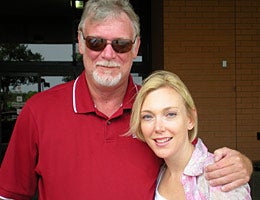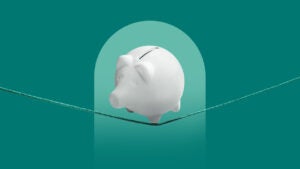4 personal stories of the Great Recession


Five years after the Great Recession, Jennifer Butz still makes out a weekly budget. She writes down how much she gets paid, subtracts her bills and leaves $50 for gas and groceries. She takes her lunch to work and never buys coffee or on-the-go breakfast.
“It’s worth the wait for things. I consider whether I really need or I really want something,” says Butz, 35, who lost her job, her car, her house and filed for bankruptcy in the last four years.
“I think I’m doing pretty good on my own now,” she says.
The financial scars of the longest post-World War II recession remain etched in many Americans’ everyday lives. Like Butz, many still hold on to the cost-cutting habits that kept them afloat after job losses, foreclosure and bankruptcy, as they regain financial security. Some are teaching younger generations these lessons. Still, some have yet to recover.
By economists’ definition, the Great Recession ended in the middle of 2009. Since then, the unemployment rate has dropped to 7.3 percent, down from 10 percent in October 2009. Home prices and sales are finally showing year-over-year gains. And consumer spending last year surpassed the peak recorded in 2008.
Still, more than 19 million people remain without a job or are underemployed. Many Americans still feel uncomfortable with their savings. And many largely remain cautious about borrowing money.
“Consumers have realized that buying a sweater you can’t afford today on credit isn’t a good idea,” says Amy Cutts, chief economist at Equifax. “It’s much better to save up the money and buy it later.”
For an individual’s personal finances, that seems financially savvy if a bit conservative. For the economy, especially one that is largely dependent on Americans’ penchant for spending, lingering frugality means a sluggish recovery.
“The trends we see today may not foretell what will happen in the future,” says Antoni Guitart, director of research and consulting at TransUnion. “The big key is how robust the improvement in consumer confidence is. If it remains volatile, it’s harder to anticipate what it will take to get consumers to spend on credit.”
These four stories in the wake of the Great Recession show how it still affects the daily lives of Americans.

Avoid spending and become debt-free
Jennifer Butz, 35, of Atlanta, became a home loan officer in 2006 just as the housing bubble made its last hurrah. Not long after, she was diagnosed with a rare blood disorder. For the next year, the brisk pace of business along with credit cards and her savings helped Butz stay afloat despite multiple hospitalizations.

Jennifer Butz
“But then, 2008 rolls around, and that’s when everything hit the fan,” Butz says.
Butz was hospitalized again for 38 days in 2008. By the time she got out, she had no job. Her house was going into foreclosure and her car had been repossessed. Her credit cards had gone to collections and she faced thousands of dollars in medical bills. She finally filed for bankruptcy in September 2009. A Catholic charity also paid for surgery to remove her spleen to keep her blood disorder in check.
Butz now audits warranty claims for third-party, rent-to-own companies — a stable, well-paying job. Besides doing a weekly budget, Butz earmarks money for savings and debt, such as the $1,500 she got as part of a mortgage settlement. She’s working to pay off the $6,000 on her car loan and $3,000 in credit card debt.
She lives in the cheapest rental apartment she can find, one that doesn’t exceed a quarter of her take-home pay. She still thinks about owning a home again, but says she’s gun-shy after losing her previous home.
“If I want to buy a house or a car, I want to pay with cash,” Butz says. “My biggest goal is to be debt-free.”
Age becomes a job applicant’s nightmare
Karla Sutton remembers her father as a fun guy. He listened to Jimmy Buffet. He played darts in a league. He was known for his annual Christmas party.
“He was everyone’s pal,” she says of her late father, David, who passed away at age 60.

Karla Sutton and her father, David.
At one time, David Sutton had $500,000 in retirement savings and a new fixer-upper house in Columbus, Ohio. That was before he lost his job in 2007 when he was 54. At first, Sutton, who had been employed by the same company for 30 years, visited the public library every day to apply for positions. He was interviewed multiple times but never was hired. His daughter believes it was because he was close to retirement age.
“I think he eventually gave up,” says Karla Sutton, 37, who lives in New York. “He put on weight. He developed hypertension.”
David Sutton drained all but $30,000 from his retirement funds over the next five years, taking on hefty tax penalties for withdrawing early. He racked up $10,000 in credit card debt and large medical bills because he had no health insurance. His house, which he bought at the height of the bubble, lost its value. All the while, he refused any financial help from his children.
“For people of my father’s generation, there is so much to owning a home and having a job,” Karla Sutton says. “It’s morally defeating in addition to being a financial disaster.”
Older Americans were less likely to become unemployed during the recession, but once they were, they looked longer for the next job and fell out of the workforce more often than their younger counterparts, says Sara Rix, senior strategic policy adviser at AARP Public Policy Institute.
A 2010 AARP survey of Americans ages 50 and older found that a quarter of them had exhausted their savings while almost a fifth fell behind on credit card payments or accumulated more credit card debt.
“This recession will linger on the way the Depression did for older people,” Rix says. “If you learned anything, it’s that your retirement savings can disappear in a blink of an eye.”
One morning this past June, Karla Sutton spoke to her father on the phone, urging him to go to the emergency room for his worsening back pain. He never did. David Sutton collapsed, dying from either an aortic aneurysm or heart attack, both of which can be caused by hypertension.
“There is a part of me that blames the recession for his passing so early,” says Karla Sutton, who ended up paying her father’s funeral expenses because he no longer carried life insurance. “He was not in a position to take care of himself.”
Siphon money to savings each month
Jewel Brown, 41, opened her own hair salon in Norcross, Ga., in 2008, a tale of bad timing. Within a year, Brown had to start running special discounts just to get customers through the door. She shouldered the work herself, unable to hire more staff to increase business.

Jewel Brown
On the homefront, she had a son to care for on her own and a mortgage payment that was too high.
Refinancing was out of the question because she was upside-down in her mortgage, a common scenario during the recession where the value of the home is worth less than the mortgage.
“I didn’t think I would last long,” she says. “There were days when I cried because I thought I would have to close the salon. I kept thinking, ‘How am I going to pay these bills?'”
Brown did what many Americans across the country did. She cut back. She turned off her landline and depended on her cellphone. She nixed premium cable and settled for basic services. She stopped eating out. She blew through her six-month savings cushion, keeping the lights on at her business and at home.
She and her son also developed a new saving habit together. They would save their coins in a jar, and every six months, she would deposit the full jar, worth $300, into a savings account. The strategy helped Brown buy her son a computer for school. It’s also now helping her replace her depleted savings.
This month, Brown got another boost. She received a mortgage modification after three years of applying for one without success. Her interest rate was slashed to 3.1 percent from 8.1 percent, saving her $5,000 per year.
“I feel really blessed,” Brown says. “It was an eye-opening situation, but I learned how important it is to always save. Even if it’s just a dollar, that will add up. I’m teaching my son that, too.”
Why we ask for feedback Your feedback helps us improve our content and services. It takes less than a minute to complete.
Your responses are anonymous and will only be used for improving our website.



